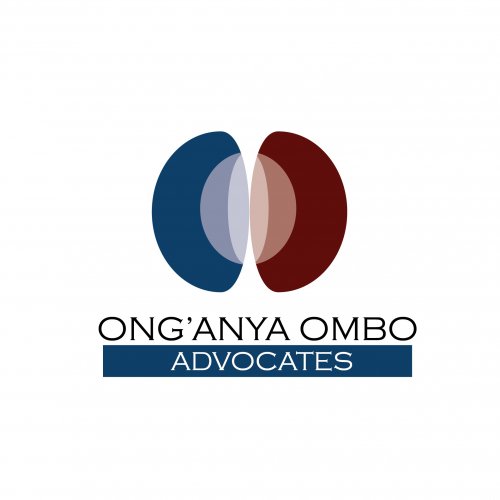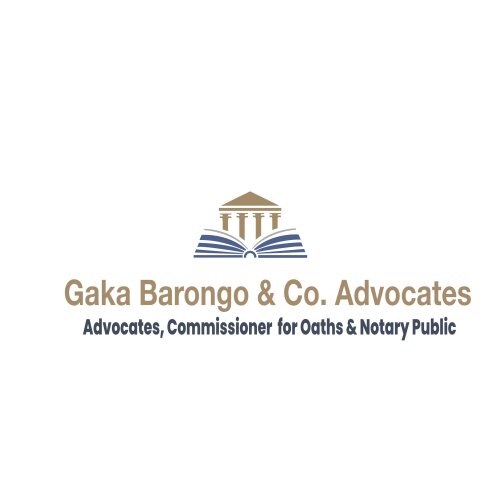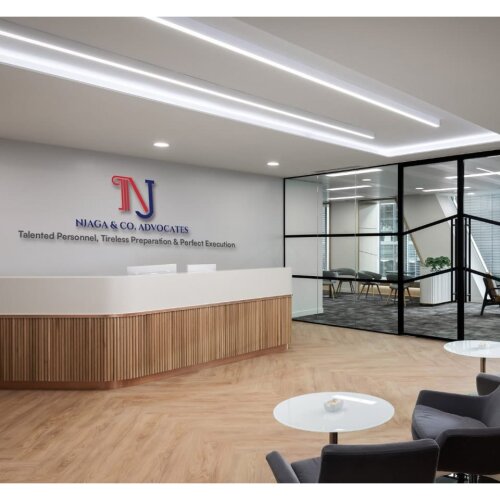Best Biotechnology Lawyers in Nairobi
Share your needs with us, get contacted by law firms.
Free. Takes 2 min.
List of the best lawyers in Nairobi, Kenya
About Biotechnology Law in Nairobi, Kenya:
Biotechnology in Nairobi, Kenya refers to the scientific application of living organisms, bioprocesses, and biomolecular techniques to develop products and technologies. The field holds immense potential for innovation and advancements in healthcare, agriculture, and industrial sectors.
Why You May Need a Lawyer:
There are various situations where legal assistance in Biotechnology may prove valuable:
- Patent Protection: If you have developed a biotechnological invention and want to protect your intellectual property rights through patents.
- Regulatory Compliance: Understanding and navigating through the complex regulatory framework governing biotechnological activities, including permits, licenses, and safety protocols.
- Dispute Resolution: Resolving conflicts related to intellectual property infringement, contracts, licensing, or collaborations within the biotechnology industry.
- Ethical and Legal Issues: Addressing concerns related to bioethics, genetic engineering, biosafety, and data privacy.
- Investment and Funding: Seeking legal advice to secure investment, negotiate contracts, or navigate through funding options for biotechnology projects.
Local Laws Overview:
In Nairobi, Kenya, several laws and regulations govern the field of biotechnology:
- The Biosafety Act, 2009: This law establishes the Biosafety Authority responsible for regulating genetically modified organisms (GMOs), ensuring safe practices, and maintaining public health and environmental safety.
- The Industrial Property Act, 2001: Governed by the Kenya Industrial Property Institute (KIPI), this law covers patent protection, trademarks, industrial designs, and utility models for biotechnological inventions.
- The Pharmacy and Poisons Act, 1956: Overseen by the Pharmacy and Poisons Board, this act regulates the importation, manufacture, and sale of biological products, including vaccines and biopharmaceuticals.
Frequently Asked Questions:
Q1: What are the key ethical considerations in biotechnology?
In biotechnology, ethical considerations revolve around issues like genetic manipulation, human cloning, informed consent, privacy of genetic information, and equitable access to biotechnology-based treatments.
Q2: How can I protect my biotechnological invention?
You can protect your invention through patents, which provide exclusive rights to make, use, and sell your invention for a limited period. Consult a lawyer experienced in biotechnology patents to assist you with the process.
Q3: What approval processes are required for conducting biotechnology research?
Biotechnology research involving GMOs or other potentially hazardous substances is subject to strict regulatory approval. The Biosafety Authority oversees the process and requires researchers to submit applications, risk assessments, and safety protocols.
Q4: Are GMOs regulated in Nairobi, Kenya?
Yes, GMOs are regulated under the Biosafety Act. The law sets out measures to ensure the safe handling, transport, research, development, and release of GMOs, including labeling requirements for GMO products.
Q5: What legal remedies are available for biotechnology-related disputes?
In case of disputes, parties may seek resolution through negotiation, mediation, arbitration, or litigation. It is advisable to consult with a lawyer specializing in biotechnology law to assess your specific situation.
Additional Resources:
For further information and assistance, consider referring to these resources:
- Kenya Industrial Property Institute (KIPI): http://www.kipi.go.ke/
- Kenya Biosafety Authority: https://www.biosafetykenya.go.ke/
- Pharmacy and Poisons Board: http://pharmacyboardkenya.org/
Next Steps:
If you need legal assistance in the field of biotechnology, consider taking the following steps:
- Identify your specific legal needs within the biotechnology context.
- Research and shortlist lawyers or law firms experienced in biotechnology law.
- Schedule consultations with potential lawyers to discuss your situation and assess their expertise.
- Select a lawyer who can provide the necessary guidance and assistance.
- Communicate with the lawyer, providing all relevant information, documents, and concerns.
- Collaborate with your lawyer to navigate the legal processes, understand your rights, and take appropriate steps to address your biotechnology-related legal matters.
Lawzana helps you find the best lawyers and law firms in Nairobi through a curated and pre-screened list of qualified legal professionals. Our platform offers rankings and detailed profiles of attorneys and law firms, allowing you to compare based on practice areas, including Biotechnology, experience, and client feedback.
Each profile includes a description of the firm's areas of practice, client reviews, team members and partners, year of establishment, spoken languages, office locations, contact information, social media presence, and any published articles or resources. Most firms on our platform speak English and are experienced in both local and international legal matters.
Get a quote from top-rated law firms in Nairobi, Kenya — quickly, securely, and without unnecessary hassle.
Disclaimer:
The information provided on this page is for general informational purposes only and does not constitute legal advice. While we strive to ensure the accuracy and relevance of the content, legal information may change over time, and interpretations of the law can vary. You should always consult with a qualified legal professional for advice specific to your situation.
We disclaim all liability for actions taken or not taken based on the content of this page. If you believe any information is incorrect or outdated, please contact us, and we will review and update it where appropriate.















